Tired of life in California, where he’s sold tech companies for millions of dollars, Korean-American John Kim has come to Ukraine to start again.
Kim has been working in the information technology industry for most of his life. Quite successfully, if one counts earning millions of dollars as an aim of running a tech business. He and other three co-founders sold their cloud-based call center software developer Five9 for $1.4 billion.
But over the last 15 years, Kim has become exhausted by life in San Francisco, a city of workaholics, as he calls it, and a city where one can’t escape IT, whether at the dining table or in a bar.
“People talk about work all the time in San Francisco. It feels like you can never escape IT there,” Kim said in an interview with the Kyiv Post.
In Ukraine, Kim has already noticed, when people get together to have dinner, they rarely talk shop. Besides, those who surround Kim in Kyiv now are not only people of IT, he has friends who are teachers, electricians, and mechanics.
So after a hectic life of 60-hour workweeks in the United States, the American enjoys life in calmer Ukraine, and he’s sure his expertise can help its tech industry.
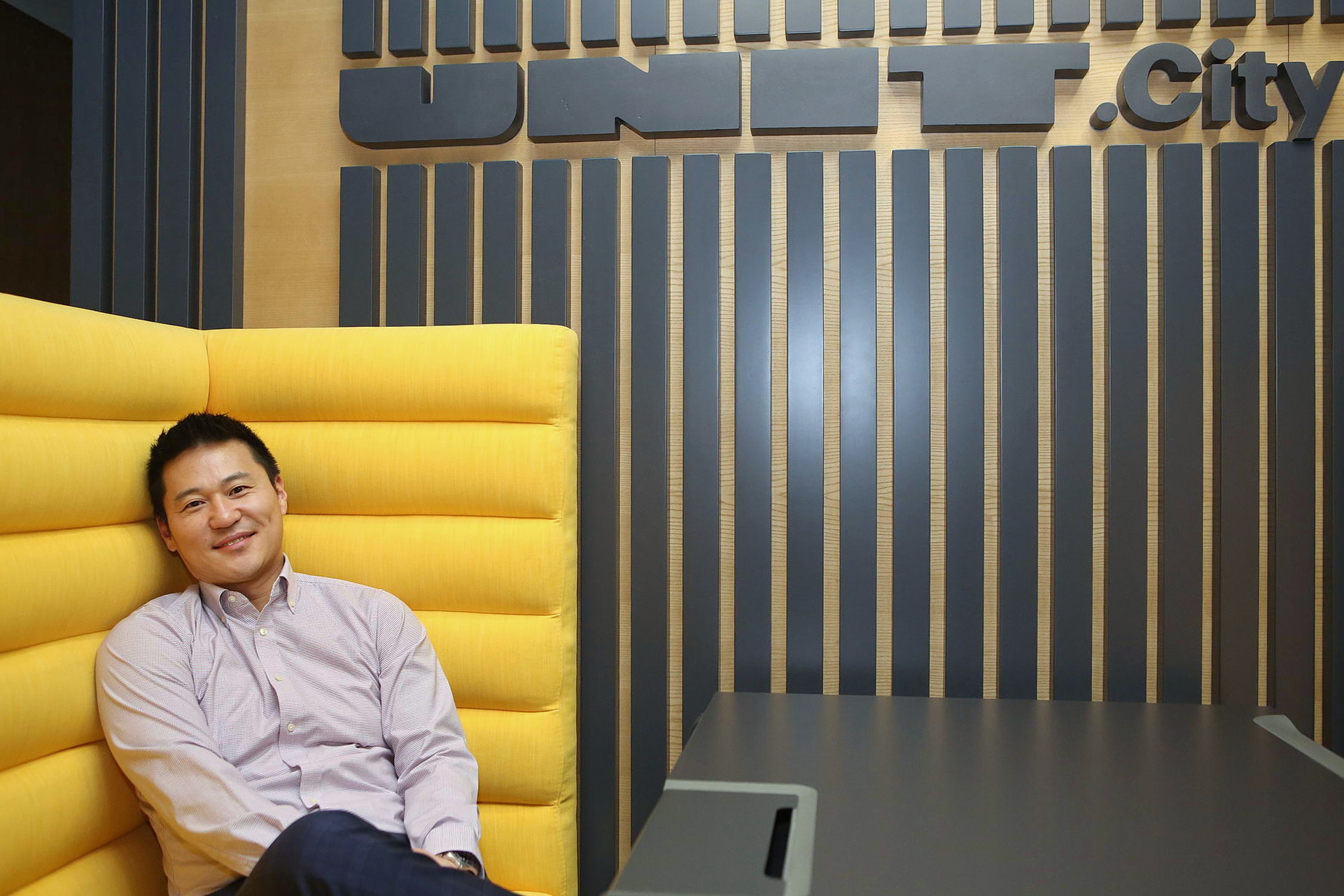
John Kim poses for a picture in the premises of Unit.City, a Kyiv innovation park that rents offices to tech companies like Kim’s new email marketing firm JetBridge. (Kostyantyn Chernichkin)
From IT outsourcing to creating startups
The move to Ukraine was accidental for Kim. His business partner Mischa Spiegelmock’s parents moved to the United States from the southern Ukrainian city of Odesa. Having Ukrainian roots, Spiegelmock suggested setting up an office of their new email marketing company JetBridge not in San Francisco, but in Ukraine. So they did.
Several months in Ukraine were enough for Kim to get to know a lot about the country, both from the business side and culturally.
Ukraine is rich in software outsourcing firms, as he noticed, but there’s not much of innovation in most of the outsourcing firms based in Ukraine. They teach employees to code in the Java programming language, “the digital language of the serving class of engineers,” he said, adding that few young programmers now learn Java in Silicon Valley.
However, Ukraine needed to do that first step, according to him. The outsourcing has taught many young talents to work in IT, and it is time for them to move on and take a risk founding their own tech startups.
Kim acclaimed Ukrainian “world-standard” tech firms Readdle, Preply, Grammarly, and Petcube. And he’s sure there will be more as Ukrainian programmers start to leave outsourcing companies like EPAM and Ciklum, and with little venture funding, eating cheap food, living with three roommates, risking everything, to create startups.
“It’s the beginning of a good trend,” he said, describing how excited he is to live and work in Ukraine today.
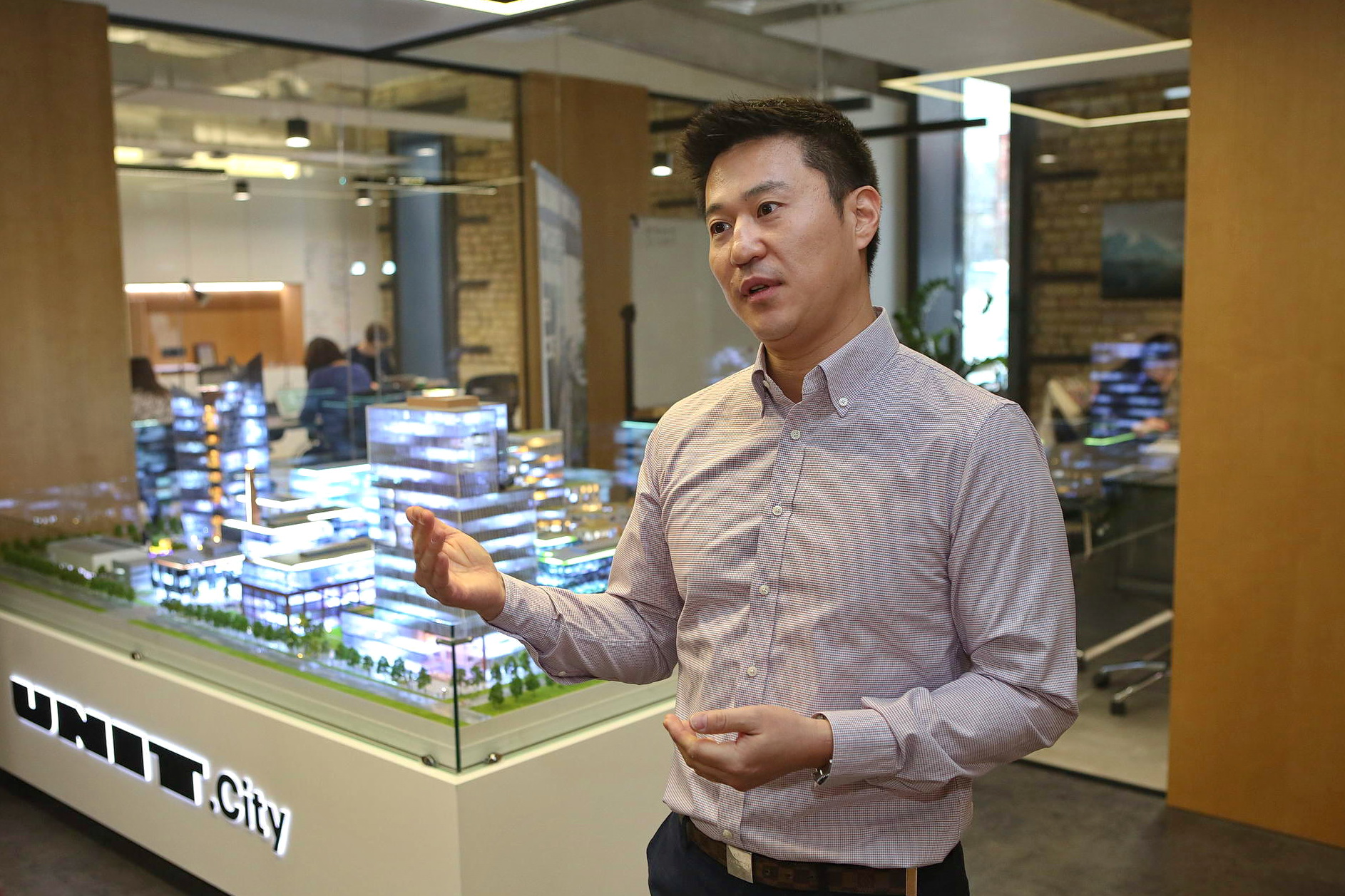
American John Kim talks to the Kyiv Post. The businessman says Ukraine’s university graduates are brilliant, but they still require a lot of knowledge on work ethics, product development, and on how to pitch their idea to investors to successfully work in the tech industry. (Kostyantyn Chernichkin)
Hiring Ukrainians
For his new tech firm, Kim hires three Ukrainians, and though he “likes to keep it as small” after selling Five9, which employed 600 staffers, he plans to grow to 10 people by the end of 2018.
Kim’s noticed that tech labor’s cheap in Ukraine, but cheap doesn’t mean quality for him, as most of the local tech people need teaching.
“If an average engineer in Ukraine was just as good as an average engineer in the U.S., every Silicon Valley company would be here. But they’re not, and there’s a reason for that,” he said. “But with the right amount of time invested in teaching them, they will be just as good.”
Hence, Kim and Spiegelmock have decided to hire young Ukrainians and train them in Silicon Valley ways. The training is not just to teach technical skills, it’s about how to think about a product and about work ethics.
Another test he uses to choose people to his team: he offers average wages but offers an opportunity to get a share in his company in a year.
“Because when people are only looking to make more money, they’re not the best people. They don’t apply themselves,” he said.
“I want the people who can revolutionize the IT economy in Ukraine,” he added.
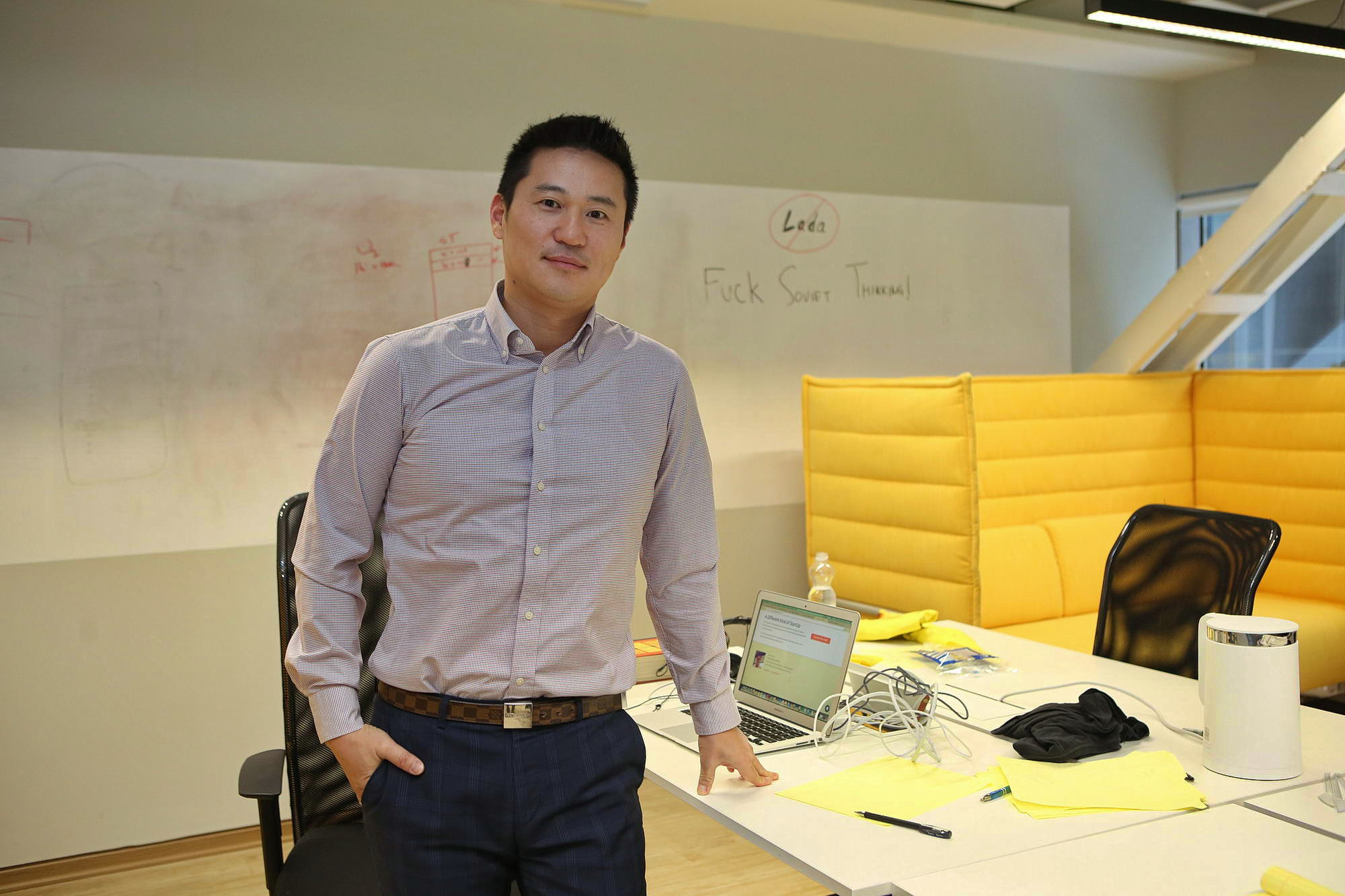
John Kim believes brain drain is “Ukraine’s biggest challenge.” Kim says Ukrainians should stop negative thoughts about their own country and stay here, for only young and smart people can develop the local economy. (Kostyantyn Chernichkin)
Ukraine’s safer than US and Poland
“Oh my god! Isn’t there a war there?” is the most common reaction Kim gets from people in the United States, when he tells them he’s going to set up an office in Ukraine; parents ask him to be extremely careful every time he leaves for Kyiv. But in reality, Kim feels much safer in Ukraine than in the United States.
“Ukraine is portrayed as a very dangerous place in the U.S., but the truth is we Americans forget that we have psychopaths killing children 20-30 at a time with automatic assault rifles,” he said.
“Ukrainians are very respectful to foreigners,” he said. Except for taxi drivers, who seem to be always trying to rip off newcomers, he added.
His previous startup had a small office in Poland. He liked the country and the people, but when going out, Kim experienced a lot of racism.
“I’d been called Jackie Chan by drunk Poles more than a few times. I love Jackie Chan, but it’s uncomfortable,” he said. “And if you have a date with a Polish girl at night… Well, I had some unpleasant experience.”
Ukrainians, in turn, are different – the Ukrainian culture is extremely tolerant, according to the American.
“You know how many problems I had in Ukraine because I’m a Korean-American?” Kim asked. “Zero!”
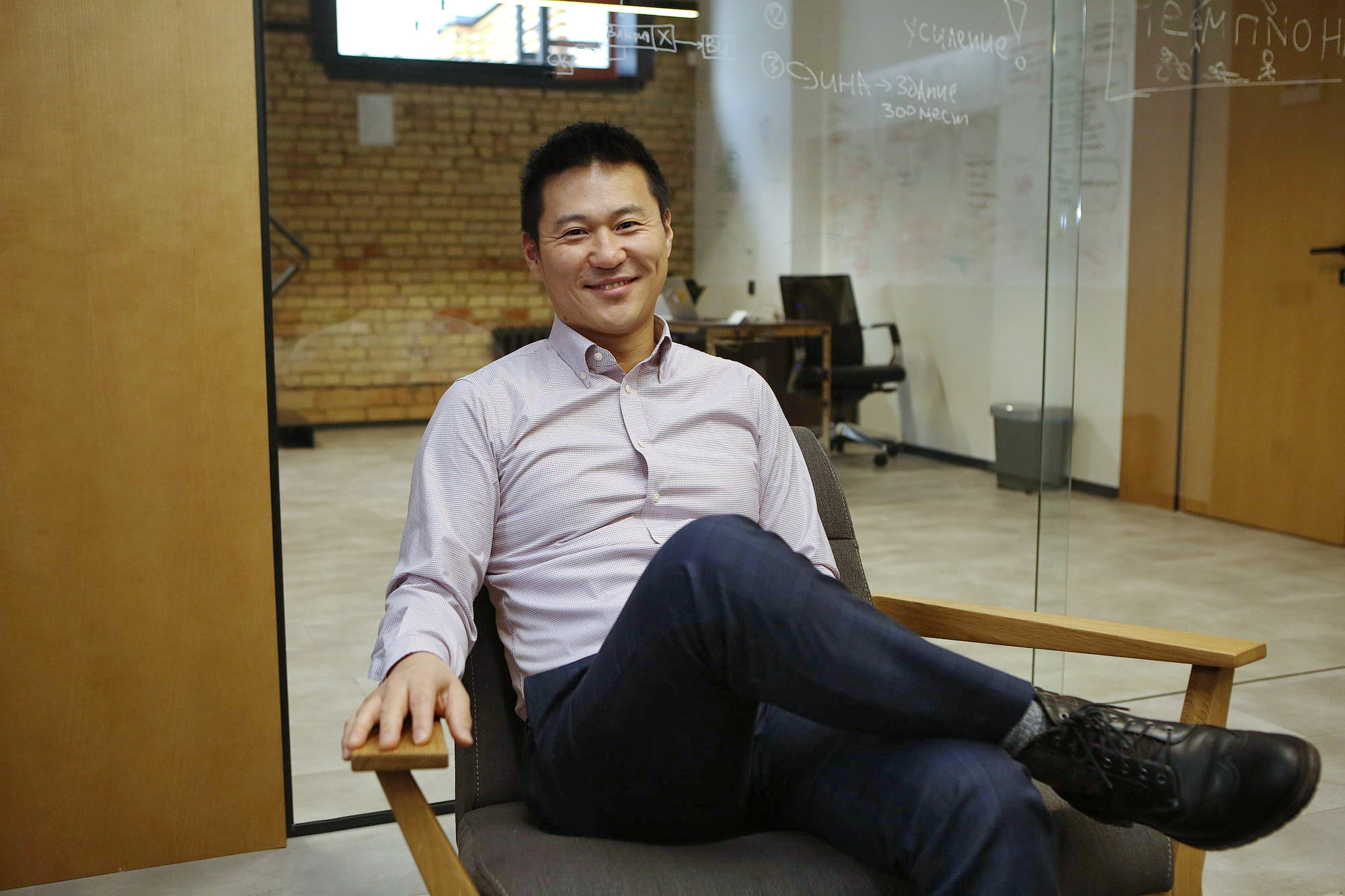
Tech businessman John Kim acclaimed Ukrainian “world-standard” tech firms Readdle, Preply, Grammarly, and Petcube. And he’s sure Ukraine will produce more successful tech companies like these as its programmers start leaving software outsourcing firms to found startups. (Kostyantyn Chernichkin)
‘Why would it get better?’
Ukraine has its drawbacks, but Kim considers negative thinking of the Ukrainians about their own country to be one of the biggest.
“Many young people assume Ukraine can’t get better, so they should go to London or New York, or even Warsaw,” Kim said. “If they get an opportunity, they feel like they have to make the most they can today.”
The brain drain is “Ukraine’s biggest challenge,” it holds back the country from the economic breakthrough, he said.
Kim thinks if all those who left Ukraine just stayed and gave ownership of their companies to their employees, and if one such company was acquired, suddenly there would appear “a bunch of young people driving Porches and buying apartments here.”
In turn, this would inspire others to leave their traditional outsourcing jobs and start their own startups.
At the same time, those who do stay rarely show their determination to make Ukraine better.
Under the articles, which the Ukrainian media wrote about Kim when he came here, there were always comments from Ukrainians implying that the foreigner could only come to Ukraine for girls.
“The startup scene’s just started to take off in a meaningful way in Ukraine. And how negative is that of your own country to think that when a foreigner comes here to open an office – ignore all the good stuff happening – it must be for girls,” he said.
That mentality is what Kim calls a self-fulfilling prophecy: “If you don’t think it’s gonna get better, why would it get better?”
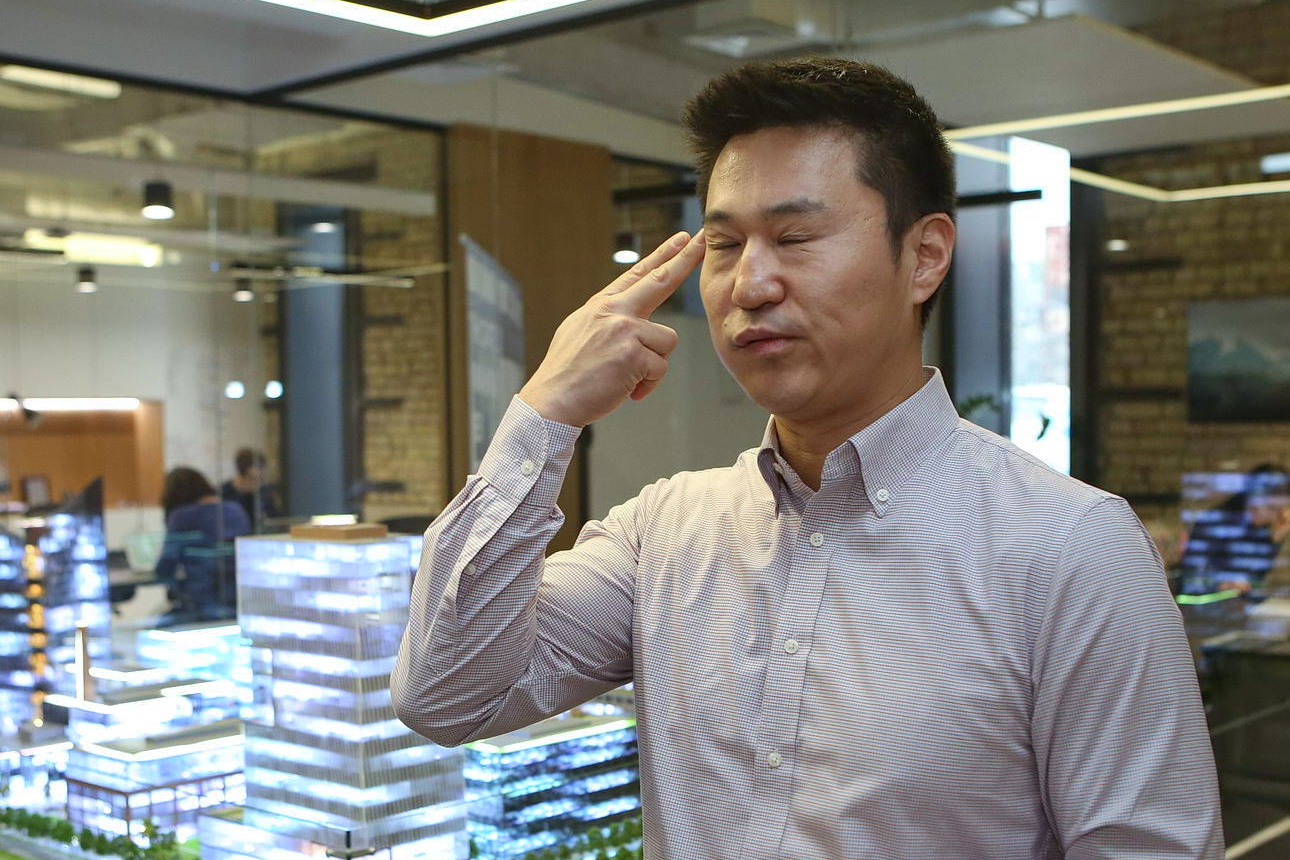
Despite all the drawbacks in Ukraine and in contrast to many negative-thinking Ukrainians, John Kim believes in the country’s future, for people here are “incredibly smart,” they just need to work harder. (Kostyantyn Chernichkin)
Ukraine needs education
Just getting rid of the negative thinking isn’t enough, though. The economic miracle of South Korea is an example he’d like Ukraine to follow, and it means Ukraine has to pay closer attention to its education system.
South Korea, a country a fraction of a size of Ukraine with much less resources, has imported teachers from all over the world, and that paid off.
“They had teachers not just for math and science, but for dance, music, art, film-making. Look at their soap operas. They are the dominant entertainment form in all of Asia,” he said. “Before I thought the Koreans are just working like crazy. But no – it’s about education.”
“And Koreans are not any smarter than Ukrainians,” he went on. “In fact, some of the smartest people I met in the world are here.”
He sees that Kyiv, Lviv universities graduate plenty of brilliant students, but they need more knowledge on product development, ethics, work culture and of how to pitch ideas to investors.
“I have never seen a good pitch here,” he said.
The reason? Ukrainians do not read up on investors, don’t follow them up after an unsuccessful conversation, and most of all – they lie.
“When foreigners come to Ukraine, we don’t lose 20 points of IQ. I know we’re not from here, but it doesn’t mean we step out of the Boryspil Airport and now we’re stupid,” Kim said.
Despite all the drawbacks and in contrast to many negative-thinking Ukrainians, Kim believes in the country’s future, for people here are “incredibly smart,” they just need to work harder.
“It’s not incredibly difficult to make a lot of money in IT, just stop complaining and work more,” he said. “Besides, in this business, everybody gets the chance to work with friends to build products that can change the world.”
The Kyiv Post’s tech coverage is sponsored by Ciklum and NIX Solutions. The content is independent of the donors.
